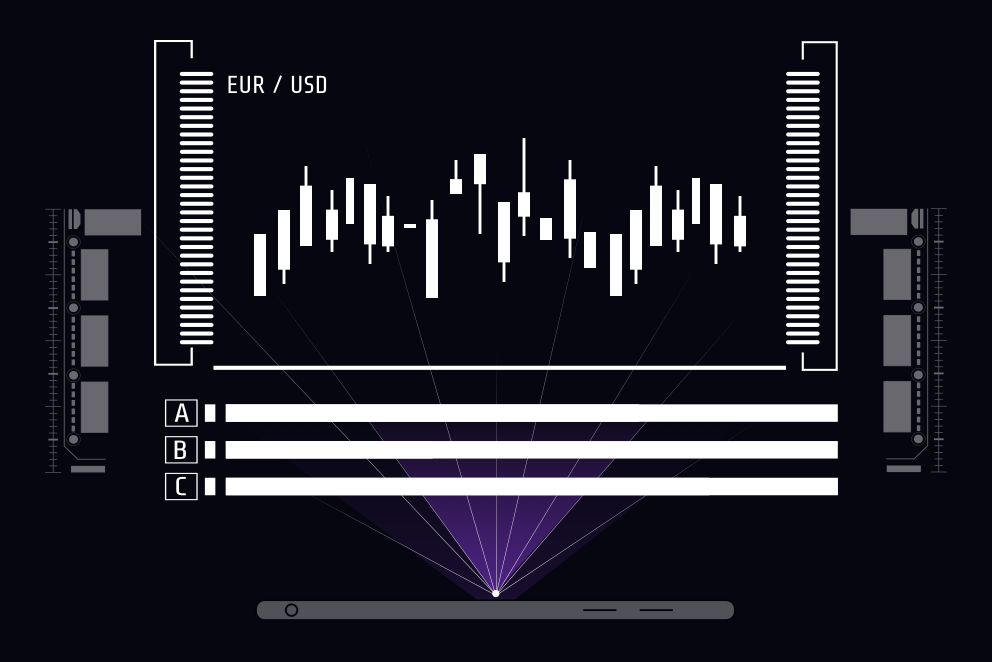AI assistants have taken over from human brokers
By 2069, artificial intelligence is everywhere, including on trading floors, and its impacts are far-reaching. Artificially intelligent assistants (AIAs) are able to highlight opportunities to traders, while also creating personalised algorithms and trading strategies for specific markets.
Everyone has a personal client manager
Human client managers are out of a job by 2069. Instead, everyone has a personalised artificially intelligent assistant (AIA). AIAs run off algorithms and are capable of thinking and learning, which has made them invaluable analytical tools for traders during their time on the markets.
AIAs are capable of opening, closing and highlighting positions on a trader’s behalf. They can ‘talk’ to traders via ear pieces or headsets, and interact much in the same way as human client managers today.

An AIA will ask for permission before opening or closing a position, unless a trader has already specified that this is not necessary. In this case, the AIA will open and close positions on behalf of the trader according to a series of pre-set algorithms.
Create trading algorithms simply by asking
A trader can create a new trading algorithm simply by asking their AIA. For example, a trader could say that they wanted an algorithm in place to trade a particular stock, which had been fluctuating in price spontaneously over the last few weeks.
With even these vague instructions, the AIA could automatically make an algorithm that ran off a day trading or scalping strategy. This could then be implemented by the trader on that particular stock. The AIA will monitor this algorithm’s success and make amendments, depending on what it considers to be the most profitable course of action. Again, the AIA will check with the trader before it changes the strategy unless the trader has specified that this isn’t necessary.
AIAs are constantly monitoring a trader’s portfolio, even throughout the night. If they identify something that could change the profitability of a trader’s positions, or a new development which would warrant opening a new position, the AIA will alert the trader, at which point they can decide whether to accept or reject the AIA’s suggestion.

Alerts tell traders what the AI has done, not what to do
When they have been calibrated as fully automatic systems, AIAs tell traders what they have done rather than advising a trader what to do. This trading report is based off the parameters that a trader has set and is meant to validate the trading rules which the AIA abides by.
If returns are less than the AIA expected, a trader could choose to amend the parameters they have in place to increase their chances of garnering profits in the future. Equally, they could ask the AIA which strategy it would recommend, and then choose to either accept or reject this recommendation.
Could this really happen?
With time travel known to disrupt the space-time continuum, our experts look at how likely it is that these events will come to pass…
The view from 2019
A few articles in this series have already touched on the increased use of AI in trading, and indeed, wider society in the future. Banks including the Commonwealth Bank of Australia (CBA) and Swedbank have already developed AI chatbots, so it is certainly not unreasonable to imagine that AI trading systems and sophisticated algorithms will increasingly be applied to the markets as today’s technology is further developed.
Applying robotics to trading could be an exciting and lucrative development. It could mean greater market volatility with trades likely to be opened and closed much more quickly than they are currently, and the predictive capabilities of robots in suggesting trading strategies could greatly reduce the number of unsuccessful trades on the market.
Robotic trading software would also add to market liquidity as people could simply let a machine to trade on their behalf with minimal training or input from the owner. This could increase the number of market participants, meaning there would be more buyers and sellers readily available to take up one side of a trade.


